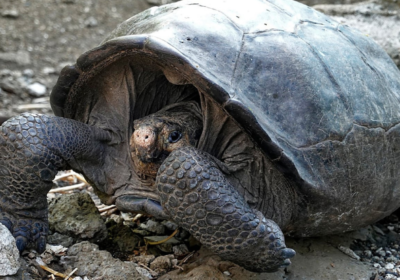Are sharks really dangerous? Do all sharks eat humans? Here are a few interesting shark facts for kids.
Selected Shark Facts for Kids
Remember the Steven Spielberg thriller, Jaws? The man-eating shark in the movie sent a chill up our spines! Yes, sharks generally have a deadly image in our minds, courtesy the many movies made on them. But are all sharks lurking in dark waters, ready to pounce on solitary humans? No, they are not. Let us find out more.
Are All Sharks Dangerous?
Out of over 500 species of sharks, only around a dozen have been found to be dangerous. The three most dangerous species are the great white shark, tiger shark, and the bull shark. The great white shark has an enormous body, and is responsible for the largest number of unprovoked attacks on humans. They just seem to have a grudge against our race.
Tiger sharks, on the other hand, have a reputation for eating anything that comes their way, man, sea creatures, or even garbage thrown by humans. Bull sharks prefer to launch their attacks nearer to shores. Most other species of sharks are harmless, though they attack if they feel threatened.
Hence, all sharks are not dangerous and that is just one among the many interesting shark facts for kids

Where Are Sharks Found?
The answer to this question is, where there is water. Yes, sharks are found in all of the five oceans, Indian, Pacific, Atlantic, Arctic, and Southern. They have been found in rivers and lakes too. Sharks do not have fixed habitats. They keep moving around, depending on water temperature.
You Provoke, We Pounce
This will definitely be the unspoken motto of sharks. Sharks attack when provoked. You enter their home, and wade in their waters. What do they do? They feel threatened, and attack. But being provoked is not their only excuse for deadly attacks. Sharks pounce on innocent victims, without provocation also. Hit-and-run cases of shark attacks are very common, especially in murky waters.
Why Do Sharks Attack?
Whenever we hear of a shark attack, this is the first question that comes to our mind. Why do these creatures attack us, when we are not causing any harm to them? They have enough reasons to do so. Let’s read some of them in our shark facts for kids.
- Sharks are intelligent and inquisitive creatures. They find something unusual, become curious to find out what it is. They only way to do this is by biting. So sometimes their attack is simply a result of over inquisitiveness. Can’t blame them, we too are over-curious at times.
- Sharks rarely attack humans for food. We are too skinny for their diet. But they do attack humans, mistaking them as probable preys. They see a wading body, and feel that they could probably eat it. After the attack, they might be saying in mind – Oops! Sorry, I mistook you for my food.
- Yet another mistake on the part of sharks happens when they detect wounds in sea creatures around. Sharks have electrical receptors which help them to detect movements as well as blood. Sometimes they sense wounded fish, and attack humans who are engaged in fishing instead.

How to Prevent Shark Attacks?
Are you planning a trip to an area where shark attacks have been reported? Better keep these in mind.
- Always go into water as a group. Sharks are more likely to choose singles for attacks.
- Avoid surfing in murky waters where visibility is less. Stay out of water when it is dark.
- Don’t venture into water if you have an open wound. Why simply cause confusion?
- Do not splash and thrash too much. Sharks have sensitive receptors. Remember, you are in their territory. If you stay calm, they stay away.
- Never venture too deep into the water. This reduces chances of getting help in cases of attack.
Now that you have a clearer picture of the so-called deadly prowlers of oceans, you can go for surfing without fear.
Find more interesting facts in our Fascinating Facts section.
Here’s Something You Might Like
As a participant in the Amazon Associates Program, Science4Kids may earn from qualifying purchases.




